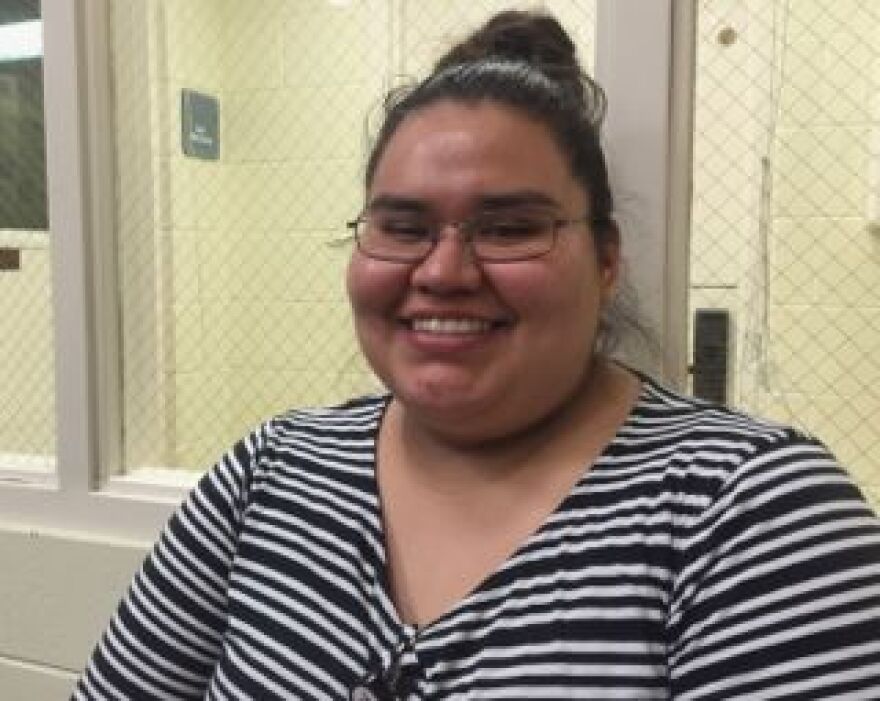Continuing low prices pressure Legislators to consider reduced oil and gas tax credits
By the Associated Press
Oil and gas tax credits are expected to be a major debate as the Alaska Legislature enters its final weeks of the session. Low prices have left the state facing a multi-billion dollar deficit, and lawmakers face some unpopular options, including changes to the dividend most Alaskans receive each year. House Minority Leader Chris Tuck said his caucus supports a tax credit bill proposed by Gov. Bill Walker that raises the minimum tax on producers. Kara Moriarty with the Alaska Oil and Gas Association said the industry is losing money and isn't a cash cow.
------------------------------------------------------------
FEMA trains tribal broadcasters in Emergency Response
By Joaqlin Estus, KNBA – Anchorage
Staff at tribal radio stations, need to alert their listeners to the same kind of emergencies that hit other communities, but some lack training on how to best do that. That’s something the Federal Emergency Management Agency, or FEMA, is working to change.
Roy Dick has worked for 16 years as the morning host and sports producer for Yakama Nation Radio in Washington. He’s one of almost two dozen broadcasters who attended the first tribal nations training week at FEMA’s Center for Disaster Preparedness in Alabama last month [March 18-22]. He said the Yakama have seen bomb scares, wildfires, shootings, severe cold and snowstorms, so he’s going to urge firefighters, law enforcement, health care providers, and tribal council members to take FEMA courses.
“Then everybody will know how to deal with it, and how to get things organized and get things set up. And if we need other equipment, we’ll get on the phone and call the
m,” said Dick. “And that’s my message, is to get more, to get more involvement of different entities of our tribal programs.
Kayla Warden, a broadcast technician at the Nez Perce Tribal Radio Station K-I-Y-E in Idaho, said her interest in the topic began when station staff struggled last summer to get updates on nearby wildfires, road closures and evacuations. Now that she’s been through the FEMA training, she’d like to see others get it too.

“Then go back home and teach your family and then teach your community and everyone that might need this training,” said Warden. “Because being prepared is one thing that I know a lot of our Indian communities, we really didn’t have especially with that wildfire.”
Ron Quinsey, an Emergency Medical Officer for the Alaska Department of Health and Human Services, oversees training for Alaskan paramedics and emergency medical technicians. He said Alaska gets its fair share of disasters – earthquakes, floods, shootings and airplane crashes, and needs to be prepared for terrorism.
"Alaska cannot be considered not to be subject of possibility. We have military bases. We have access to areas of the world that could come to Alaska and cause problems,” said Quinsey.
Quinsey said to make good decisions during emergencies, people need good information.
“Radio is so key in Alaska where our communities are so disconnected. We don’t have the road system like they do in the lower 48. We rely on those kind of electronic communications,” said Quinsey. “And radio can take a situation, can take an event, and they can concise it. They can also make it worse but most often they just make sure the public is informed on what to do. So they can solve a lot of problems just by communicating with our public.”
FEMA offers dozens of emergency preparedness training courses in areas such as medical care, fire service, law enforcement and communications – all at no cost to participants.
See related stories:
Anniston Star – (PDF attached for those who can’t open the link).
Tribal nations’ first responders train at CDP
TV-24 – Positive TV news story; includes interview of Mr. Mike King, CDP Superintendent and student Kieran Daly from the Comanche Nation
Tribal Emergency Responders Mass Casualty Exercise
Hometown News Release from Norwich, Conn.
Mashantucket Pequot Tribal Nation sends police officer to public safety training
Alaskan radio news coverage from one of our stay-behind tribal reporters during Tribal Training Week at the CDP; coverage runs from 2:08 to 4:08 in the audio clip linked below.
http://www.nativenews.net/?s=Tribal+Training
A YouTube link that Kathryn Griffith, HCL Student from the Ely Shoshone Tribe She used her phone to video some aspects of training for her report to Tribal Council
https://www.youtube.com/watch?v=WOzcCmJOqIc&feature=youtu.be

